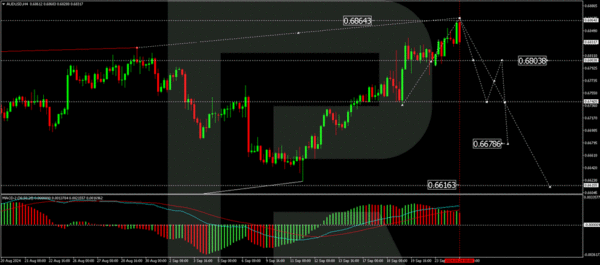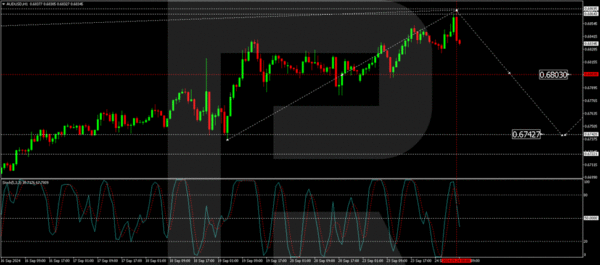The AUD/USD pair tested the 0.6860 mark on Tuesday, reaching its highest point in 2024, bolstered by supportive economic news from China. The People’s Bank of China (PBoC) announced stimulus measures to boost the Chinese economy. These measures positively influence the Australian dollar due to the close economic ties between Australia and China.
The Reserve Bank of Australia (RBA) is expected to maintain its interest rate, reflecting mixed sentiment among market participants regarding the future rate trajectory. According to a recent Reuters poll of 44 economists, only four anticipate a rate cut by year-end. However, investors assign a 60% probability of a rate reduction in December.
So far, the RBA has maintained a conservative stance regarding inflation and economic activity, believing that the economy can self-adjust without intervention. Nonetheless, the global trend towards rate cuts initiated by central banks, such as the Fed and the ECB, may influence the RBA’s perspective in the future.
AUD/USD technical analysis
The AUD/USD has completed the fifth wave of growth, reaching a target of 0.6864. Currently, a potential initial wave of decline to 0.6740 is being considered. After reaching this level, a corrective move to 0.6803 could occur, marking the upper limits of a new consolidation range. A downward exit from this range might lead to further declines towards 0.6740, with a potential continuation down to 0.6677 and possibly extending to 0.6616. The MACD indicator, currently at its peak, suggests an impending decline, supporting this bearish outlook.
On the H1 chart, the AUD/USD is forming a downward structure targeting 0.6805. Subsequently, a narrow consolidation range may develop, with a potential downward breakout leading to further declines towards 0.6744. This scenario is corroborated by the Stochastic oscillator. Its signal line currently above 80 but poised to move downward sharply.


